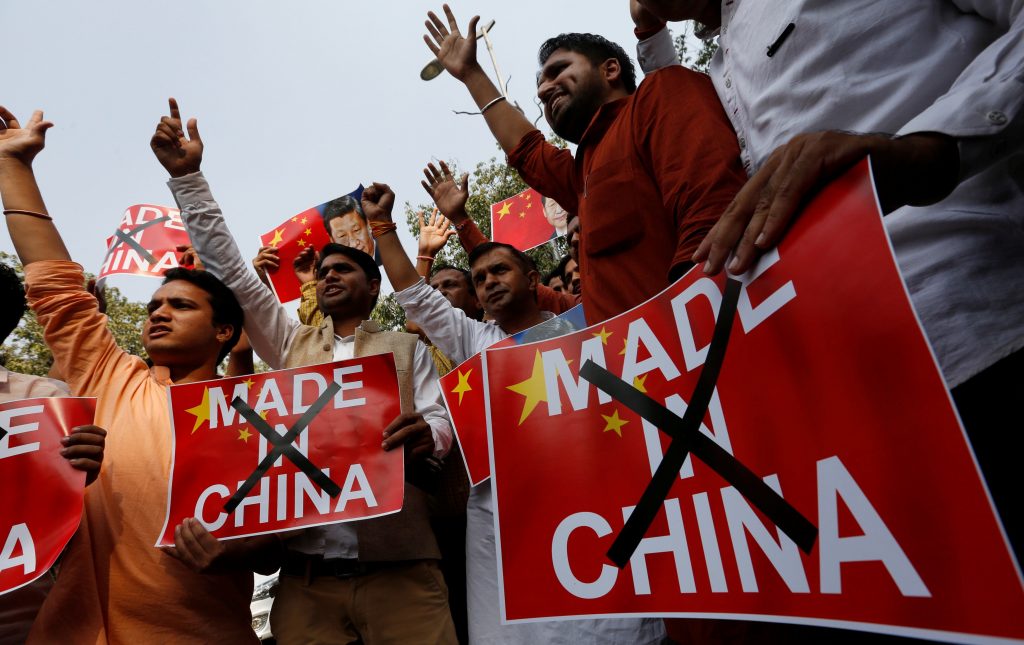There is growing anger against China in the country. The anti-China rage gets reflected in countrywide calls to jettison Chinese goods, services and even technologies – to teach China a lesson. Videos of fully-functional TV sets and smart phones, among many other genres of flashy appliances, being smashed in public view are doing the rounds in social media. Union Minister Ramdas Athawale went to the extent of even demanding a ban on restaurants selling Chinese food. The minister did not care to reason that the restaurants selling the so-called Chinese cuisine have employed Indian chefs and Indian workers, not to talk about using country-grown farm products.
Deals worth billions of dollars have now run into rough weather. Maharashtra government Monday announced to put on hold Chinese investment worth Rs 5,000 crore. Many other state governments may follow suit. While one can understand the anti-China outrage in the country in the aftermath of the brutal murder of 20 Indian soldiers and the continual Chinese provocations along the border, shutting the door on Chinese goods and services will not only make zero economic sense but will be counter-productive for the country in the short to medium term.
An oft-quoted logic is that India runs a trade deficit with China. But trade deficits are not always bad. It does not mean a trade surplus with a country will necessarily make India economically more prosperous than the partner country. For example, India has a trade surplus with the US, the UK and the Netherlands. But this does not make Indian economy any stronger or better off than any of these countries. Similarly, India has trade deficits with 20 plus countries including South Africa. Does it mean that India’s economy is worse off than South Africa’s? Therefore, trade deficit may not be a clear indicator of a weaker economy. A trade deficit with China only means that Indians buy more Chinese goods than the other way round. This also means that Indians buying Chinese goods are better off today than what they would have been had they, say, purchased a German or a Japanese product, or even an Indian alternative. Both Indian consumers and Chinese producers benefit from the bilateral trade. The situation cannot be turned around unless India puts an alternative system in place that can produce the same product at the same rate. Also, Indians don’t buy a Chinese product because they love China or a Chinese product. In fact, there is relative more antipathy against this country in India. But economics always takes precedence over other considerations. Indians buy Chinese products as they do not have a better option. Our county does not have the capacity to produce for the needs of its own country. It does not have an efficient manpower or an efficient system to produce the same product at the same price. Also no country on earth is self-reliant. It depends on others for one product or service or another. Only the ratio between the exports and the imports varies. Unlike in the past, today India has USD 500 billion of forex which can support imports for more than a year.
Also a ban on Chinese goods will hit the poorest Indian the most as India is a price-sensitive market and the poorest will be the most vulnerable to a possible price escalation. The rich in the country may survive if Chinese goods are banned here and they are replaced with costlier Japanese or German products. But the poorest in the country will suffer no end unless the government makes available to them a similarly cheap product.
